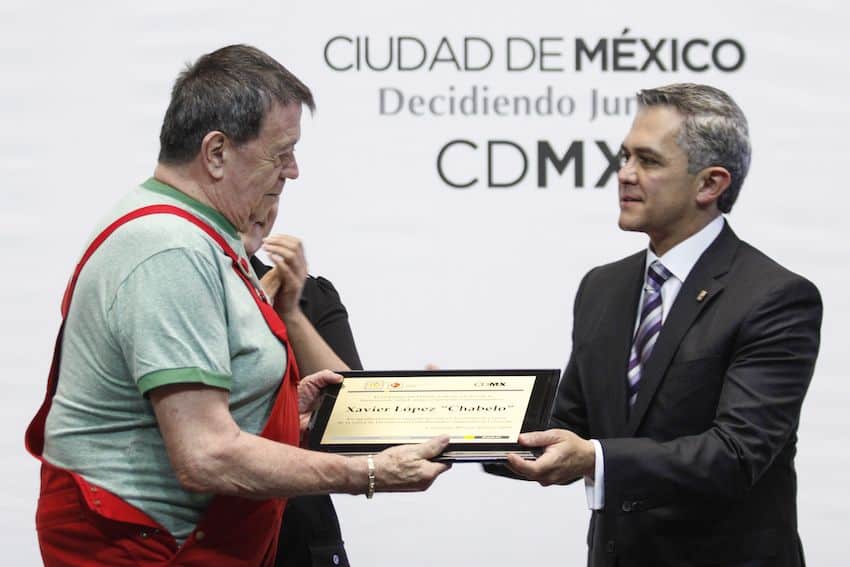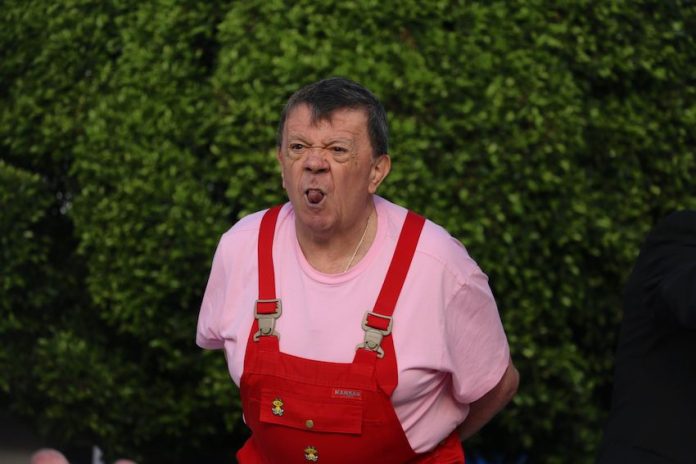Xavier “Chabelo” López, best known for his record-spanning career as a children’s television host, died on Saturday aged 88.
The actor was best known for his show “En Familia con Chabelo” (Family Time with Chabelo), which ran from 1967 until 2015.

His family stated that he had died “unexpectedly due to abdominal complications” and asked for privacy as they mourned his death in Mexico City.
There has been an outpouring of grief from all levels of Mexican society.
President Andres Manuel López Obrador sent his condolences to the family, reminiscing how his oldest son (now aged over forty) would get up early to watch Chabelo’s show.
Former president Felipe Calderón also lamented his death. “The impression I have of him is that of a hard-working Mexican, persevering in his work,” he wrote on Twitter.

Chabelo was born on Feb. 17, 1935, in Chicago, Illinois to Mexican parents. Shortly after, his parents moved back to the city of León, Guanajuato with him and his two sisters.
He was drafted into the US army at 18, during the Korean war, though the conflict ended before he could be deployed. He later returned to Mexico and enrolled in medical school, working as a doctor in a private clinic for several years.
While studying medicine, he also started working part-time as an assistant at the headquarters of the Mexican broadcasting titan, Televisa, often filling in for actors who were late for their shows.
In 2020, he told Caras magazine he was asked to read a joke on air about a boy named Chabelo. “I read it and the voice came out like a child, and that’s where Chabelo was born,” he said

He later decided to quit his job as a doctor to become an actor. “I’ll never forget my father’s face [when I told him].” His radio show “La media hora de Chabelo” (The Chabelo Half Hour), was launched in the 1950s, before making the transition to television in December 1969.
Family Time with Chabelo aired live on television nearly every Sunday from 7 to 10 a.m. for almost 46 years.
The game show, which saw families competing in various challenges and games for prizes, only went off the air on a few special occasions such as during the 2009 swine flu pandemic, Pope Benedict XVI’s visit to Mexico in 2012, or when Chabelo fell ill.
The show’s permanent presence on TV even introduced a new verb to Spanish slang in Mexico – catafixiar, referring to the final segment of the program “La Catafixia.” In it, participants were given the choice to risk what they had won for hidden prizes that could range from sweets and toys to furniture, electronic goods, and even a car.
“¿Le entras a la catafixia?” Chabelo would ask participants – “do you accept the catafixia challenge?
“His show lasted so long,” Laura Martínez, a Mexcian journalist, told the BBC in an interview. “My aunts and uncles got to see him. He used to be a figure in their childhood. And then I was born, and he was a figure in my childhood.”
As the show spanned many generations, Chabelo’s character has been the subject of memes that joked about his longevity – inserting him in historical events such as the declaration of Mexican Independence in 1810 or Biblical events like the Last Supper.
Chabelo felt honored by his online popularity.
“I am very grateful to each and every one of the people who take the trouble to make a meme about me,” he told the news program Hoy. “Maybe they think they are offensive, I don’t take it that way, with all my heart… I say thank you.”
Over the weekend, Televisa paid tribute to Chabelo with reruns of his shows and movies.
When Chabelo’s final episode aired in 2015, then-Mexican president Enrique Peña Nieto, wrote López a letter thanking him for a lifetime dedicated to promoting “family values” through his TV show.
CORRECTION: A previous version of this article incorrectly stated Xavier “Chabelo” López’s year of birth. He was born in 1935.
